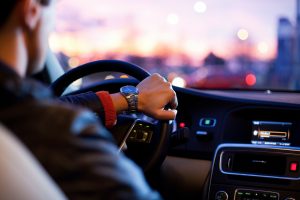While accident and deaths as a result of DWI/DUI get most of the media attention, a report from AAA shows that in the Spring of the year 2010, more than 41% of the U.S. drivers surveyed admitted to having nodded off or fallen asleep while driving. In fact, drowsy driving was the cause of approximately one of every six fatal car accidents and one of every eight crashes that resulted in a hospital visit. These statistics, however, do not even reflect the entirety of the problem.
One main reason that accidents resulting from drowsy driving are not often reported is because of hyperarousal. Hyperarousal is a condition or state that usually eliminates all noticeable signs of impairment due to fatigue and drowsiness. Since the more noticeable signs of drowsiness are eradicated by the chaos of an automobile accident, the main cause of the crash is often not detected or reported.
According to research by the National Center for Sleep Disorder Research and the National Highway Traffic Safety Administration, there are numerous risk factors for drowsy driving. These include driving late at night, driving after the ingestion of medication, sleep-restrictive work patterns such as working night shifts or overtime, sleep disorders such as narcolepsy or sleep apnea, and the drinking under the influence of alcohol.
Drivers often use caffeine as a quick measure to combat drowsiness, but the most effective way to combat drowsy driving is modifying an individual’s behavior to obtain adequate sleep.
In many cases, the problem that many DWI defense lawyers and the police have is identifying whether an individual is impaired due to an intoxicant or due to sleep deprivation. The consumption of alcohol makes matters even more complicated. A small amount of alcohol can greatly affect an individual who is deprived of sleep.
Impact of Alcohol Consumption On Drowsiness
In 1994, a study was conducted to determine the effects of alcohol consumption and drowsiness on a person’s driving. The test subjects who were asked to consume small amounts of alcohol on only 4 hours of sleep had 15 times as many off-road deviations compared to the subjects who consumed the same amount of alcohol on 8 hours of sleep.
The study highlighted that the factors were cumulative, and that a combination of driving, alcohol, and sleep deprivation could significantly increase an individual’s risk of being involved in a crash.
If you would like more information about DWI related issues, visit us at http://www.kanslaw.com
